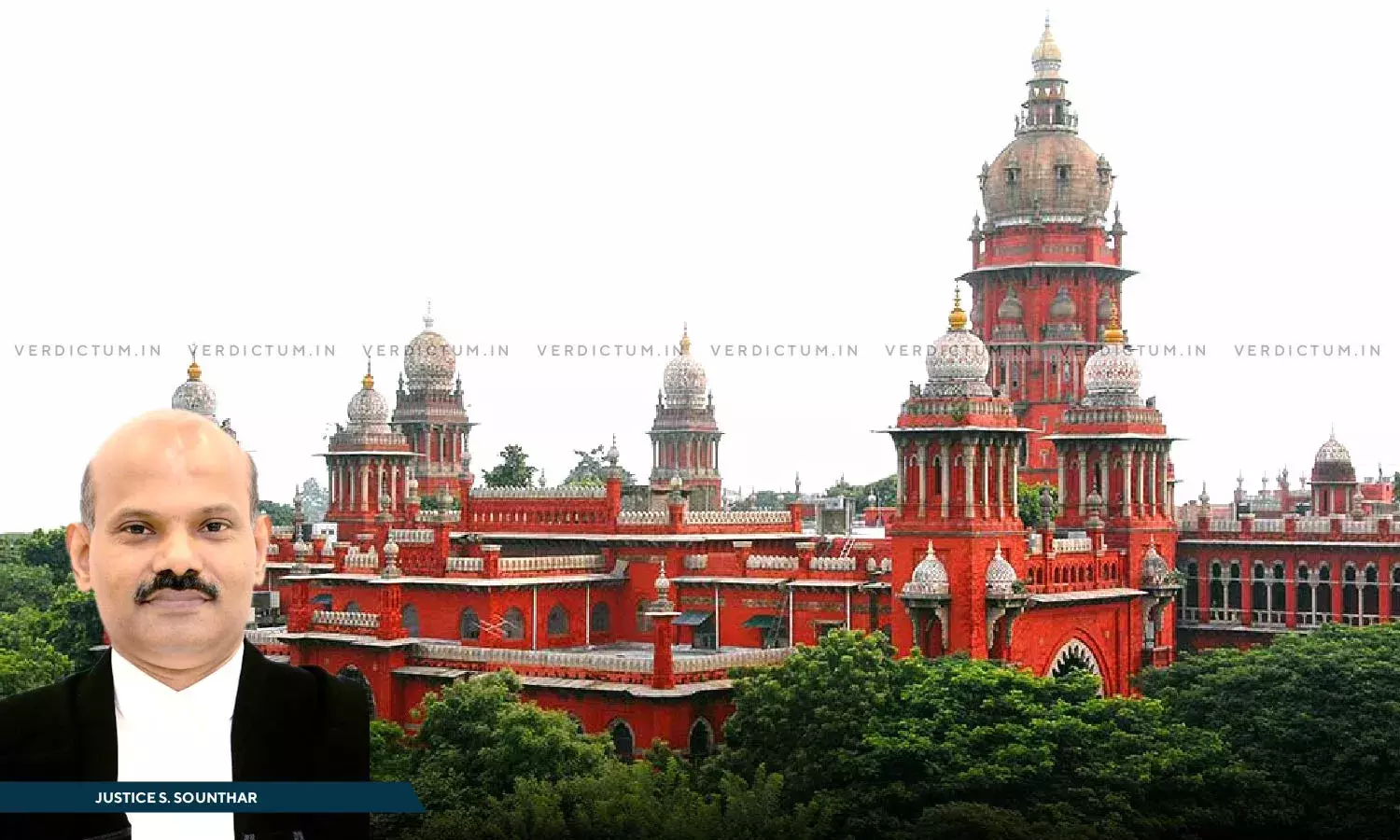Women Outside Age Bracket Of 21 To 50 Years Can't Claim Assisted Reproductive Technology Services As A Legal Right: Madras High Court
The Madras High Court was considering a Writ Petition challenging the order rejecting the petitioner's plea to avail of services under the Assisted Reproductive Technology (Regulation) Act, 2021.

The Madras High Court has held that the Assisted Reproductive Technology (Regulation) Act, 2021 prohibits the application of AR Technology to a woman above the age of 50 years.
The High Court was considering a Writ Petition challenging the order passed by the 7th respondent- Secretary of the Ministry of Health and Family Welfare, rejecting the representation of the petitioner requesting him to permit the petitioner to use gametes of donors and avail services under the Assisted Reproductive Technology (Regulation) Act, 2021 (ART Act) by citing Section 21(g) of ART Act.
The Single Bench of Justice S. Sounthar held, “Therefore, Section 21(g) of the ART Act creates a legal right for woman above the age of 21 years and below the age of 50 years to demand ART services as a matter of right, subject to conditions prescribed under Act…In other words, the woman outside the age bracket prescribed under the section, though may desire for ART services, however, cannot claim said services, as a legal right and enforce the same in the Court of Law.”
Advocate G.R. Hari represented the Petitioner while Government Advocate E. Sundaram represented the Respondent.
Arguments
It was the case of the Petitioner that the word 'Woman' is defined under Section 2(u) of the ART Act as any woman above the age of 21 years, who approaches an ART Clinic or ART Bank to obtain the authorised services. Hence, in the absence of any upper age limit for the word 'Woman', the 7th respondent- Secretary of the Ministry of Health and Family Welfare, committed a serious error in rejecting the request of the petitioner for availing ART services by citing her age.
It was further submitted that Section 21(g) only makes it mandatory for the ART Clinic to apply ART services to a woman between the ages of 21 years to 50 years and it does not mean a woman above the age of 51 years is not entitled to seek services of ART.
Reasoning
Referring to Section 21(g) of ART Act, the Bench observed that ART Clinics are duty-bound to apply the Assisted Reproductive Technology (ART) services to woman above the age of 21 years and below the age of 50 years.
It was further observed that Section 2(u) of the ART Act prescribes only lower age limit and no upper age limit has been prescribed. Section 27(2)(b) of the Act prescribes that ART Bank shall obtain oocytes from females between the age of 23 years and 35 years. “...a woman is entitled to donate oocytes only upto the age of 35, however, she is entitled to be a recipient of gametes upto the age of 50 years. Since two different upper age limit are prescribed for a woman, who is donor and woman, who is recipient, the legislature in order to avoid confusion would have consciously omitted the upper age limit in the definition of the word 'Woman”, it said.
The Bench further explained that as per the objects and reasons of the enactment, the upper age limit for a woman seeking ART shall be 50 years and the same is reiterated in Section 21(g) of the ART Act. “Hence, we can safely presume that Act prohibits application of AR Technology to a woman above the age of 50 years”, it further held.
It was further observed that by virtue of the ageing process, the risk to the life of a mother above the age of 50 years is more than that of a mother below the age of 50 years. The pregnancy risk is also very much high after 50 years. “Therefore, legislature thought it fit to fix an upper age limit for application of ART. Therefore, the age limits prescribed under the Act cannot be said to be irrational”, the Bench said.
As per the Bench, the age limit prescribed under Section 21(g) of the Act, is irrational. Dismissing the Petition, the Bench found no error in the order denying the request of the petitioner for ART services by relying on Section 21(g).
Cause Title: Kavitha Anand v. State of Tamil Nadu (Neutral Citation: 2025:MHC:360)
Appearance:
Petitioner: Advocate G.R.Hari
Respondent: Government Advocate E.Sundaram, Central Government Standing Counsel K.S.Jeyaganesan

